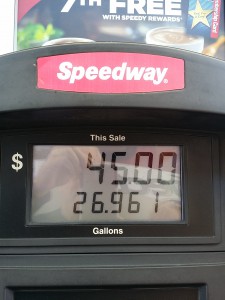
I am more concerned about taking it easy on my RV than I am with fuel economy!
Like a car, the harder you push your RV the worse the RV gas mileage will be. It does not matter if it is a diesel engine or a gasoline engine. Driving an RV at 70 mph will consume more fuel than driving it at 60 mph. Most RV’s are big boxes that are not aerodynamic at highway speeds. The faster you go, the higher your fuel consumption, and with exponential results!
I have read statistics that state that for each five miles per hour that you drive over fifty miles per hour, you can expect to spend and additional seven to fourteen percent more dollars at the pump! I am not advocating driving at fifty miles per hour on interstate highways! But, fifty-five to sixty miles per hour is safer and more enjoyable!
What other factors can decrease your RV gas mileage!
- Not using cruise control.
- Excessive acceleration from a stopped position.
- Improper tire pressure.
- Not keeping the maintenance of the RV up to date.
- Excessive idling.
- Carrying too much weight
Why would using the cruise control be a good idea when on long stretches of flat roads? Well, first off it makes it easier on the driver as focusing on maintaining a constant speed is eliminated. Secondly, using the cruise smooths out the accelerator input during longer periods of travel and helps cut down on fuel consumption.
Racing to the next stop with your RV while driving in city traffic can cost you a lot! Accelerating at a quarter to half throttle can save you some fuel. Studies have shown that moderate braking and acceleration can save you as much as thirty-one percent in fuel consumption compared to a more aggressive driving style.
What about your RV tires? Can tires that are under-inflated be a problem for your fuel economy? Of course! But not only that but for your safety too! Tires that are under-inflated, or over inflated, can be a condition that will lead to a blowout! But, back to the reason you don’t want your tires to be soft when talking about wasting fuel is that it will lead to modest levels of increased fuel usage when they are under-inflated.
Regular engine service and tune-ups can increase your mileage by as much as twenty percent. Don’t ignore that air filter! And, ignoring that check engine light can waste almost forty percent of your fuel dollars.
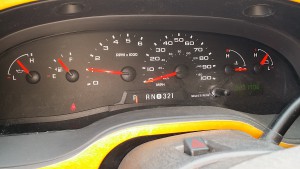
Okay! I am going to reference a little high school physics on the issue of carrying too much unneeded weight in your RV. Newton’s second law having to do with force, mass, and gravity can be considered here when it comes to using more fuel due to excess weight.

Therefore, the more weight you carry, the more fuel it is going to take to get to your destination! For example, do you need to travel with a full tank of water if you are going from one RV park to another? A tank of fresh water can weigh three to eight hundred pounds depending on its size. The same is true for your black and gray water tanks.
When traveling in your RV, only have on board those things you need if you want to save on your RV gas mileage! Pam and I are amazed when we see what people have in the bins of their RV’s.
Most of these issues apply to gas powered RV’s as they react differently to load than does a diesel powered RV. But some of these issues apply to them as well!
Lindsey, our four-legged fur kid, wanted us to throw this image into this post. She’s a real comedian!!
In Conclusion
Pam and I drive our gas powered RV with care! We are cognizant of how it is loaded, tire pressure while traveling, what fluids we have on board when on the move, and while on the road we drive it like an RV, not a sports car!
Given that our Ford chassis is always near its maximum recommended loaded weight, we have a big concern about the powertrain lasting if we are not careful about the way we drive it. The transmission is the biggest concern. So we accelerate slowly to take it easy on the engine and transmission and thereby save a little on our RV gas mileage as well!
We wish you safe and enjoyable travels as you venture out in your RV! Hopefully, you are enjoying the full time RV lifestyle too!!


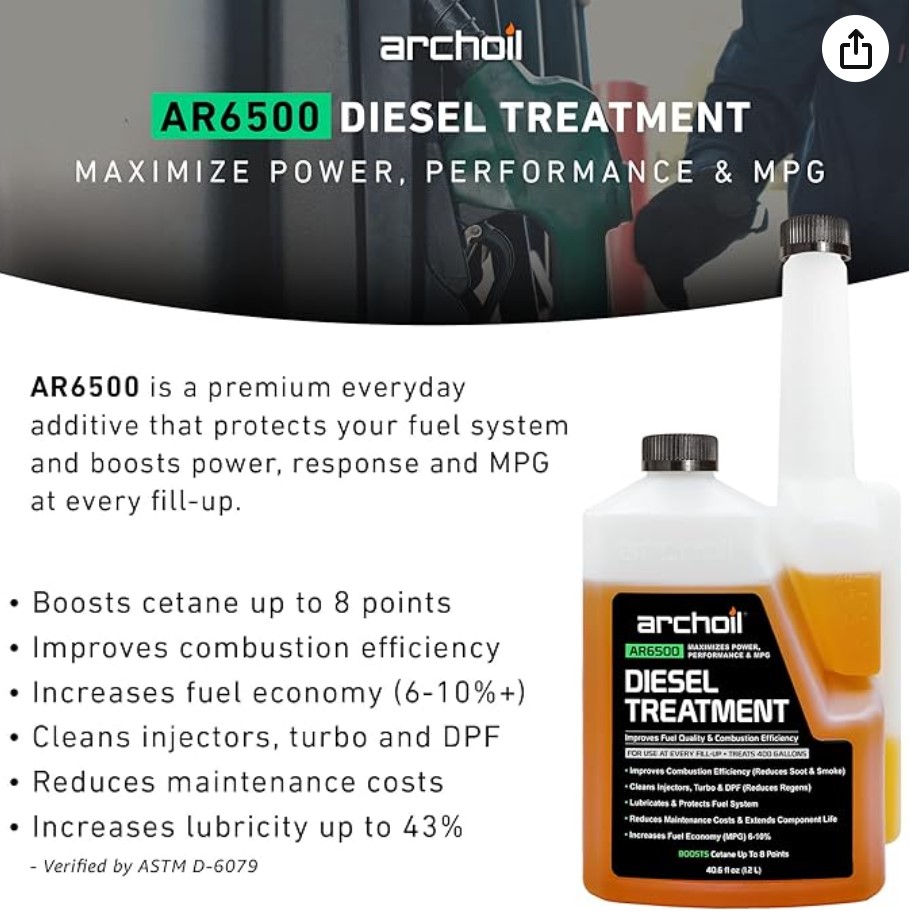



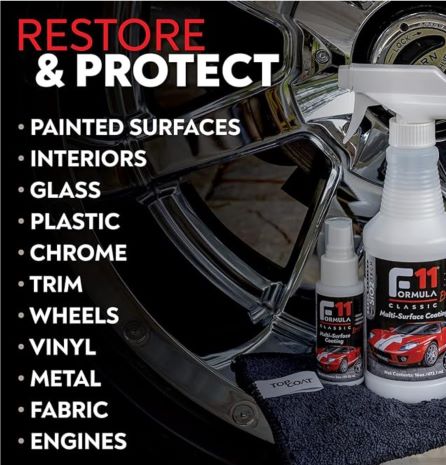
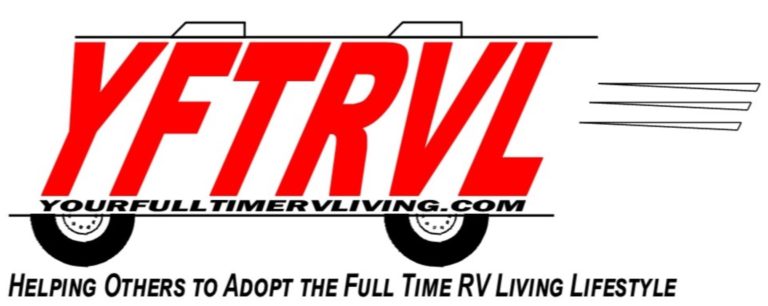



2 comments
Something you may have not thought about before concerning mileage with a pickup truck pulling a towable. On six speed vehicles you usually have two overdrive gears (5th & 6th). Sixth gear is designed to load the engine with moderate to heavy loads occasionally.
When pulling a load of around 9,000 lbs as an example, I have achieved better milage by locking the transmission in 5th gear and turning about 250-300 more RPM than running in 6th gear. Also I keep the speed between 60 & 65 MPH.
Author
Hi, Joe!
Thanks for checking in!
Prior to our current RV, we had a 12,000 lb Freightliner Sportchassis Medium Duty truck that pulled a 20,000 lb 5th wheel trailer. We had a sweet spot of 2200 rpm’s in 6th gear, at 63 mph, with the Allison transmission. That gave us around 10 mpg with that RV.